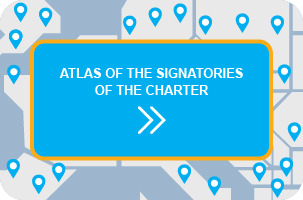Gender Equality in Employment – essential for reaching EU’s targets on Economic Growth
Women’s economic engagement and the Europe 2020 agenda, this was the topic of a conference that recently took place in Dublin on the 29-30 of April hosted by the Irish Presidency of the Council of the EU, and organized by the European Commission.
The conference emphasized the important link between women’s role in employment and the necessity to advance gender equality as an essential and contributing factor to improve economic growth in Europe.
The event brought together experts on gender equality and employment, policy makers, representatives from European institutions and NGOs.
It was concluded that in order to reach the European Union’s ten year growth strategy EU 2020, the EU countries needs to encourage more women to engage in the labour market. This constitutes one of the main strategies to achieve the smarter, more sustainable and inclusive growth that EU strives for.
According to recent figures from Eurostat 46 million women between 20 to 64 years are outside the labour market, compared with 25 million men. Furthermore, recent surveys indicate that although women often have a higher education, they represent only a third of both the self-employed in the workplace in EU. In addition to these figures, the Gender Pay Gap remains at 16.2% in Europe, which represents 59 days of free work.
The conference started with a presentation of the recently published report “Closing the Gender Gap: Act Now” from OECD, that provided background information on the topic.
As rapidly growing, creating around 120,000 new jobs in Europe each year, the ICT (Information and Communication Technology) sector was given special attention. Since women constitute only 30 per cent of the ICT workforce in Europe, it is necessary to work on finding new ways of encouraging girls and women take up careers in ICT.
Other issues that were brought up were barriers and challenges that women often face and that can hinder their careers. Some example of policy measures that could support women’s employment and improve gender equality are:
– Use more flexible working time arrangements
– Provide parental leave possibilities for both women and men
– Work to prevent gender stereotypes which sometimes determines the educational choices
– Provide a good and affordable childcare
– Provide support to women’s entrepreneurship.
For more information on the conference please visit the Irish Presidency website.















